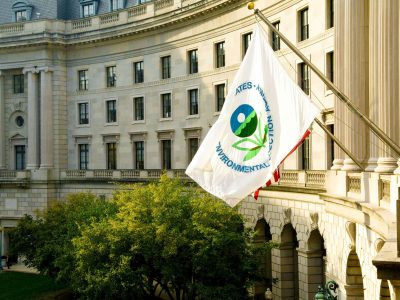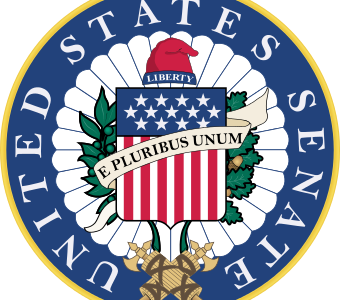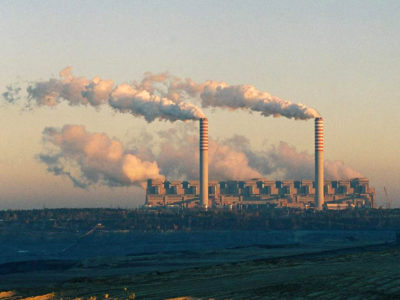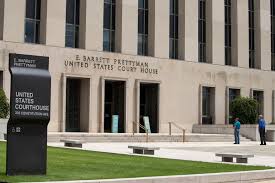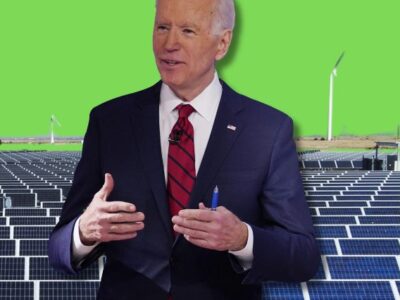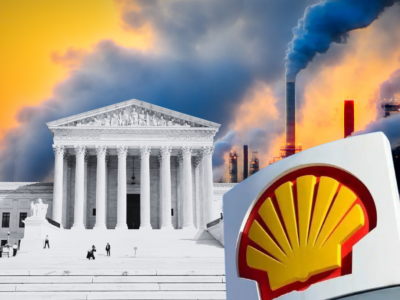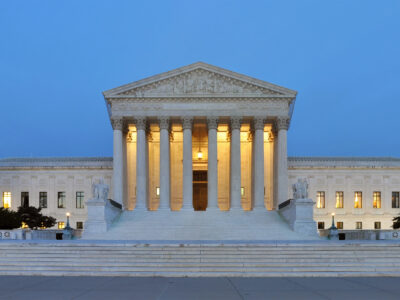Biden Administration
What Happened to EPA Enforcement?
Enforcement efforts peaked long ago and have been in long-term decline. Trump will accelerate that.
There has been a long-term decline in EPA enforcement since the late Bush Administration. The numbers raise three questions: What’s behind the long-term trend? Why has pollution generally continued to decline despite weaker enforcement? And how bad will things be under Trump II? As to the third question, Trump has already made it clear that we can expect environmental enforcement to crash and burn in the next four years.
CONTINUE READINGSenate Parliamentarian Confirms that California Waivers Are Not Subject to the Congressional Review Act
Will Republicans honor her determination?
As I have previously written, the Trump Administration is attempting an end run around the administrative process it is supposed to follow if it intends to revoke the waiver California received for three important programs to cut air pollutants from cars and trucks. You can find the details about this end run around — using …
CONTINUE READINGThe Legal Complexities of Deregulating Power Plant Carbon Emissions
The Supreme Court struck down Obama’s powerplant regulation. but it didn’t endorse Trump’s first try either.
We are likely to end up with a Trump rule for powerplant emissions that is much weaker than the Biden rule, but not as weak as EPA’s effort in the first Trump Administration. And the process will take Trump longer this time, with a greater litigation risk.This matters because even a very weak rule may require significant investments in improving powerplant efficiency, which could result in some plant closures.
CONTINUE READINGWhy I Still ♥ IRA
Biden’s climate law has already had a dramatic impact.
With over a half-trillion dollars in clean tech investment to date, the Inflation Reduction Act has left an indelible mark on U.S. climate policy. It’s unlikely that Congress will vote to repeal the whole law, given massive investments in GOP congressional districts. But even if they did, there’s no undoing the investments already made.
CONTINUE READINGLitigating Against Trump
Trump’s agencies had a terrible litigation record the first time. It will probably get better – but not that much better.
In his first term, Trump’s litigation record was awful – winning only one case in four by some estimates.The Trump folks should do a better this time. But they may not improve that much, and could still lose more often than they win. Money invested in litigating against the Administration will be well spent. Meticulous attention to evidence and legal requirements is likely to remain a weak point.
CONTINUE READINGJoe Biden, Hail and Farewell
His climate actions will resonate far into the future.
Joe Biden is about to vanish from the political scene, but not from the history books. The last election casts a pall on his reputation, as does his unpopularity. But history may be kinder, as it has been for Harry Truman and Jimmy Carter. Beyond all else, he has been our best president yet on climate policy. For our descendants, that will matter a lot more than a couple of years of inflation that impacted their ancestors.
CONTINUE READINGTalking Climate Policy with an Energy Economist
An interview with leading energy expert Catherine Wolfram
Catherine Wolfram, a leading energy economist who has researched the impact of the Inflation Reduction Act, shares her views of the impact of the IRA, its likely fate, and the energy policies of the incoming Trump Administration. Wolfram served as the Deputy Assistant Secretary for Climate and Energy Economics at the US Treasury in 2021-2022
CONTINUE READINGHuge Snub for Big Oil at the Supreme Court
Oil companies failed to persuade the justices to shield them from the growing number of state lawsuits seeking damages for the harms caused by climate change.
Big Oil has failed to persuade the U.S. Supreme Court to shield it from numerous state climate lawsuits filed across the country seeking damages for the harms caused by climate change — harms like the historic, supercharged urban fires burning in Los Angeles. The justices held a conference on Friday, January 10 to determine whether …
Continue reading “Huge Snub for Big Oil at the Supreme Court”
CONTINUE READINGGood & Bad Environmental News From the U.S. Supreme Court
Escalating Legal Attacks on California’s Longstanding Clean Air Act “Waiver” Authority
This past week, the U.S. Supreme Court issued important orders in two closely-related environmental cases previously decided by the U.S. Court of Appeals for the District of Columbia. Last Friday the justices granted review in Diamond Alternative Energy v. Environmental Protection Agency, agreeing to decide whether fossil fuel manufacturers have legal standing to challenge an …
Continue reading “Good & Bad Environmental News From the U.S. Supreme Court”
CONTINUE READINGHow to Make Climate as Compelling as Egg Prices
While politicians are right to focus on cost of living, it’s dangerously wrong to assume voters rejected climate policies in the 2024 election.
How do we make the climate crisis as compelling to voters as the price of eggs? That’s a question—an existential question—I’ve been asking myself for weeks now. My UCLA Emmett Institute colleagues and I have some ideas that I’ll be sharing over the next weeks and months. We’re hardly alone: Two months after a disheartening …
Continue reading “How to Make Climate as Compelling as Egg Prices”
CONTINUE READING



